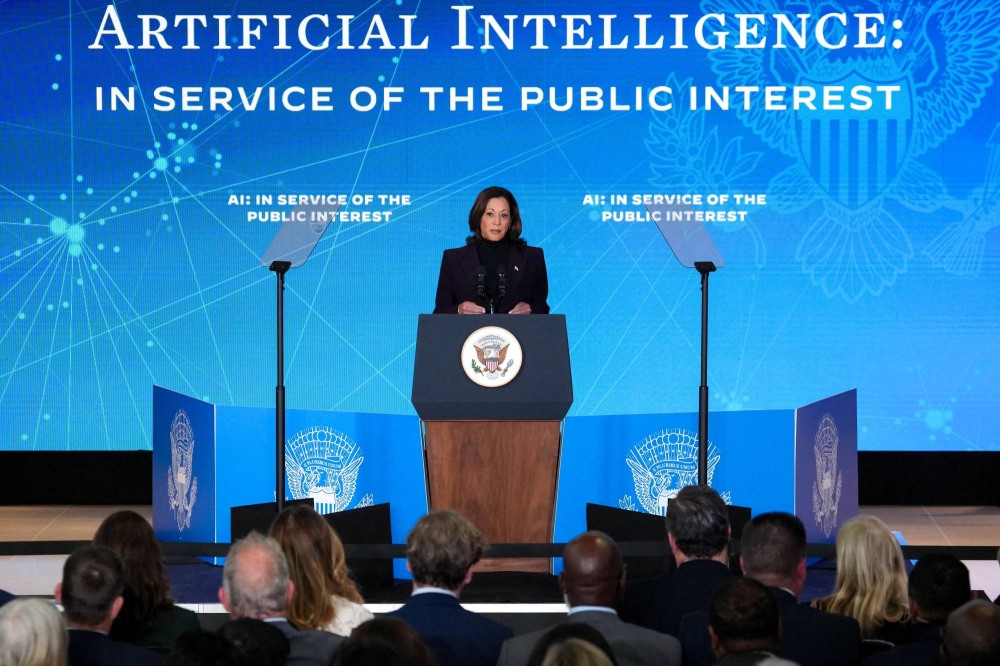Scientists have warned that advances in artificial intelligence pose “catastrophic” risks to humanity’s very existence.
These remarks were made on the sidelines of the United Kingdom’s two-day (Nov1-2) AI Safety Summit attended by people from 28 countries convened at former codebreaking spy base near London.
Delegates from 28 nations, including the U.S. and China, agreed Wednesday to work together to contain the risks posed by artificial intelligence.
British Prime Minister Rishi Sunak said the declaration was “a landmark achievement that sees the world’s greatest AI powers agree on the urgency behind understanding the risks of AI – helping ensure the long-term future of our children and grandchildren.”
In a speech at the U.S. Embassy, Harris said the world needs to start acting now to address “the full spectrum” of AI risks, not just existential threats such as massive cyberattacks or AI-formulated bioweapons.
“There are additional threats that also demand our action, threats that are currently causing harm and to many people also feel existential,” she said, citing a senior citizen kicked off his health care plan because of a faulty AI algorithm or a woman threatened by an abusive partner with deep fake photos.
Getting the nations to sign the agreement, dubbed the Bletchley Declaration, was an achievement, even if it is light on details and does not propose a way to regulate the development of AI.
The countries pledged to work toward “shared agreement and responsibility” about AI risks, and hold a series of further meetings. South Korea will hold a mini virtual AI summit in six months, followed by an in-person one in France a year from now.
China’s Vice Minister of Science and Technology, Wu Zhaohui, said AI technology is “uncertain, unexplainable and lacks transparency.”
“It brings risks and challenges in ethics, safety, privacy and fairness. Its complexity is emerging,” he said, noting that Chinese President Xi Jinping last month launched the country’s Global Initiative for AI Governance.
“We call for global collaboration to share knowledge and make AI technologies available to the public under open source terms,” he said.








